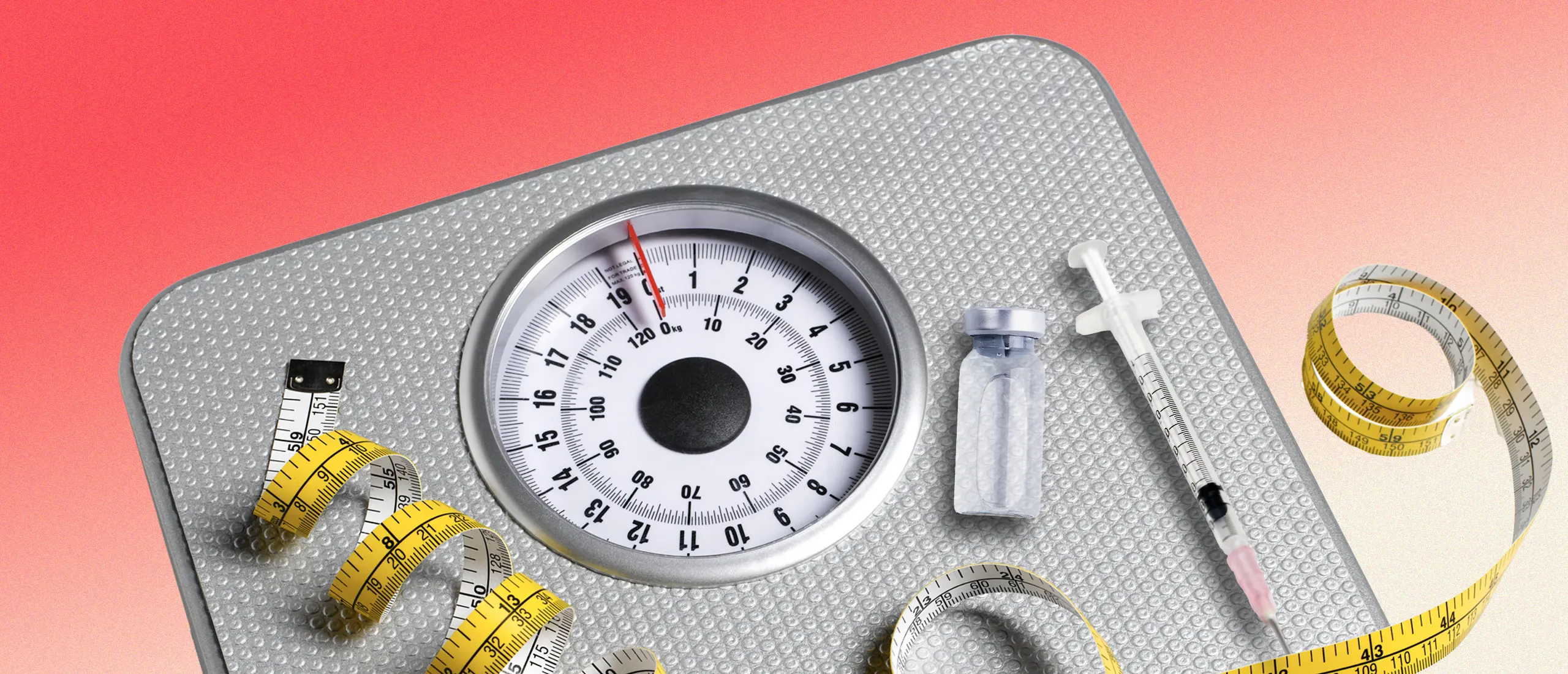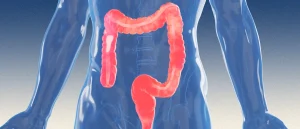Sermorelin for Weight Loss: Does It Work?
- By Stephanie Anderson Witmer
- March 14, 2024
Sermorelin—one of the several peptides that may help with weight loss—has been getting some attention as an alternative to pound-peeling injectables like Mounjaro and Wegovy. Social media channels are rife with claims the drug helps you shed excess weight, build lean muscle, and even improve sleep quality. But just how effective is sermorelin for weight loss?
Unlike GLP-1 inhibitors like Wegovy and Ozempic, sermorelin doesn’t directly cause weight loss. “Sermorelin mainly works to boost muscle growth, which can help eliminate fat,” says longevity expert, Neil Paulvin, D.O.
That said, James Staheli, D.O. explains sermorelin can help you put on muscle, which could indirectly help you shed a few pounds. Ahead, experts explain everything you need to know about sermorelin, so you can speak with your physician about if peptide therapy is right for you.
About the Experts
Daniel Maselli, M.D., an American Board of Obesity Medicine-certified expert in metabolic and bariatric endoscopy and the associate director of research at True You Weight Loss.
Christopher McGowan, M.D., founder, CEO and chief medical officer of True You Weight Loss, and an expert in obesity medicine and weight loss.
Sulagna Misra, M.D., the founding physician at Misra Wellness in California and a specialist in obesity medicine, weight loss and men’s health.
Neil Paulvin, D.O., a longevity expert and specialist in autoimmune conditions, gut health and hormone imbalances.
James R. Staheli, D.O., is the Medical Director for Broad Health, Hone Health’s affiliated medical practice and a family medicine doctor, with a specialization in men’s hormone health.
What Is Sermorelin?
Sermorelin is a synthetic version of naturally occurring growth hormone-releasing hormone (GHRH). It’s in a class of peptides called human growth hormone (hGH) secretagogues.
GHRH is produced by the hypothalamus and triggers the pituitary gland to produce hGH, a peptide that is vital for growth, development, tissue repair (1) and body fat–muscle composition.
Human growth hormone does a lot in the body, McGowan says. This includes:
- Breaking down fats to use them instead of protein for energy (1)
- Contributing to lipid (fat) metabolism to prevent fats from being stored in the body (2)
- Regulating carbohydrate metabolism and blood-sugar levels (2)
Sermorelin is FDA-approved to treat growth hormone deficiency in children. But some physicians are prescribing it off-label to adults to stimulate hGH production and tap into the hormone’s benefits, Sulagna Misra, M.D. says.
While secretagogues like sermorelin do effectively increase levels of human growth hormone, metabolic expert Daniel Maselli, M.D. points out that this may not translate to weight loss (3). “The existing literature is pretty deficient in published, peer-reviewed data on the use of sermorelin in adults to treat obesity.”
Will Sermorelin Help Me Lose Weight?
Sermorelin may indirectly help you lose weight. This is because most of the hGH (or growth hormone) that the peptide helps to produce goes to the liver to produce IGF-1 (insulin-like growth factor 1) (4).
IGF-1 helps to regulate several vital processes in the body, including muscle protein synthesis (MPS) which involves repairing muscle tissue that was damaged during exercise and promotes muscle tissue growth—and can help increase your strength (5). According to Stahlei, enhanced MPS can increase lipolysis, or as Misra describes, “fat cell death” (6) (7).
In short, taking sermorelin can increase growth hormone levels, which in turn, can help boost muscle mass. Having more muscle can help you burn more calories and, in part, target fat loss more aggressively (8).
It May Target Visceral Fat
Research suggests GHRH treatment (which includes sermorelin) can support lipid metabolism and significantly reduce visceral fat (9).
Visceral fat—the deep abdominal fat that wraps around internal organs like your heart, liver, and intestines—is linked to an increased risk for cardiovascular disease, type 2 diabetes and Alzheimer’s disease (10, 11, 12)
Tesamorelin, a GHRH peptide similar to sermorelin, has been found to reduce visceral fat in those with HIV, but at the moment, there aren’t any studies on sermorelin having demonstrated the same effect (13).
It May Help Balance Your Hormones
Human growth hormone affects other hormones that regulate metabolism, including testosterone, thyroid hormones and cortisol. When there’s an imbalance of these hormones, it can be tough to keep the pounds from piling on (14, 15, 16, 17).
Sermorelin stimulates hGh production, but just know there currently isn’t any research that says taking sermorelin will balance these weight-influencing hormones.
How Can You Get Sermorelin Injections?
Your physician can test to see if you’re deficient in hGH and write a prescription for sermorelin, if needed. Staheli adds that Sermorelin can also be prescribed to help you put on muscle—this could be especially helpful if you’re taking weight loss medication.
You can also buy it online, though that’s not recommended. “I would not get sermorelin from unregulated pharmacies or one without a prescription, as many peptides like this have been found to have heavy metals or other toxic chemicals,” Paulvin says.
OTC peptide supplements exist, too, that claim to increase production of hGH and boost anti-aging properties, fat loss, mood and more. But these products aren’t injectable sermorelin. And, as Stahlei notes, they “are not regulated by the FDA and therefore have unsubstantiated claims.”
Does Sermorelin Have Side Effects?
You’re not going to grow 10 feet tall if you start taking synthetic GHRH. But there can be some side effects that can range from mild irritation such as pain, swelling or redness around the injection site to joint and muscle pain to even gynecomastia (man boobs), Stahlei says.
Keep in mind that sermorelin could potentially interfere with other medications, including insulin and other diabetes medications like semaglutide. (Sermorelin can mess with blood-glucose control and make these meds less effective.) Your physician will rule out thyroid disorders before prescribing sermorelin (18, 19).
“Legitimate anti-obesity medications, including semaglutide, tirzepatide and liraglutide, are proven treatments for obesity,” Christopher McGowan, M.D., explains. “Their FDA approval is based on years of study, including large randomized, placebo-controlled clinical trials.”
References
1. Journal of Physiology, et al (2010). Growth hormone stimulates the collagen synthesis in human tendon and skeletal muscle without affecting myofibrillar protein synthesis.
2. Endocrine Review, et al (2009). Effects of Growth Hormone on Glucose, Lipid, and Protein Metabolism in Human Subjects.
3. Sexual Medicine Reviews. et al (2018). The Safety and Efficacy of Growth Hormone Secretagogues.
4. MedlinePlus. IGF-1 (Insulin-like Growth Factor 1) Test.
5. Nutrients, et al (2018). Recent Perspectives Regarding the Role of Dietary Protein for the Promotion of Muscle Hypertrophy with Resistance Exercise Training.
6. ScienceDirect. Lipolysis.
7. The Journal of Clinical Endocrinology & Metabolism, et al (2008). Role of Growth Hormone in Regulating Lipolysis, Proteolysis, and Hepatic Glucose Production during Fasting.
8. MedlinePlus. Can you boost your metabolism?
9. Growth Hormone & IGF Research, et al (2015). Effects of growth hormone–releasing hormone on visceral fat, metabolic, and cardiovascular indices in human studies.
10. British Journal of Radiology (2012). The clinical importance of visceral adiposity.
11. National Institute of Diabetes and Digestive and Kidney Diseases. Diabetes, Heart Attack and Stroke.
12. Metabolites (2022). Association Between Visceral Adipose Tissue Metabolism and Alzheimer’s Disease Pathology.
13. AIDS (2017). Visceral Fat Reduction with Tesamorelin Is Associated with Improved Liver Enzymes in HIV.
14. Cells (2021). Central Regulation of Metabolism by Growth Hormone.
15. Journal of Endocrinology (2013). Testosterone: a metabolic hormone in health and disease.
16. National Library of Medicine (2023). Physiology, Growth Hormone.
17. Frontiers in Endocrinology (2020). Growth Hormone(s), Testosterone, Insulin-Like Growth Factors, and Cortisol: Roles and Integration for Cellular Development and Growth With Exercise.
18. Clinical Endocrinology (2006). Does growth hormone cause cancer?
19. Drugs.com. Sermorelin Drug Interactions.
20. ScienceDirect. Sermorelin.












